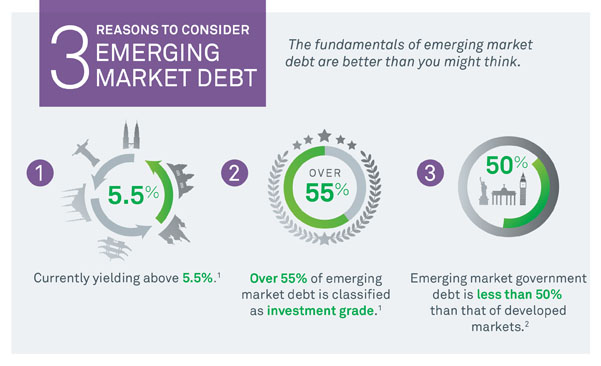
Before you invest in stocks, consider the risks involved. Each stock purchase carries risk. This includes potential losses due to a company defaulting or overestimating its potential. This can also lead to accidentally buying stock that is too expensive. Here are some tips that will help you make the most out your money. Here are the top five most dangerous risks when you invest in stocks. These risks can be avoided by following three steps.
Investing in individual stocks
Individual stock investments are a risky venture that requires great diligence. A thorough understanding of financial reports, economic conditions, diversification and other factors is essential to making informed trading decisions. Research must also be done on the management and history of each company. Investing decisions can be confusing and risky if you don't have the resources and time to research the information required. If you don't have the right experience in the area, investing in individual stocks might not be for your needs.
Individual stock investments offer many benefits. You can choose which stocks you wish to buy and how much to invest. Individual stock investments are more risky than those in index funds. You can use a stock filter to locate stocks that fit your criteria. Volatility is the main downside to individual stock investments. The market can be unpredictable, and investing can bring on emotions that are just as volatile.

Investing in stock mutual fund
Stock mutual funds are a great way to diversify but you don't have any control over the stocks. Individual investors have ownership of a percentage of the company. They can therefore share in any profits or losses. Stock mutual funds, unlike individual stock ownership are managed by professional money managers who can buy and sell stocks as needed. A high turnover rate could result in tax implications for taxable accounts. You should instead buy the stock of the company to gain control over its performance.
Diversifying your investments is another important strategy. Diversification involves investing in stocks that are from different industries and sizes. It also means that you will have stocks with lower growth potential. This may sound appealing but dividend stocks cannot be diversified. You need a mix of both types of stock mutual funds to achieve maximum diversification. As an example, you would want to have a defensive portfolio that includes both stock mutual funds and stocks.
Investing with a 401 (k)
Investing through a 401(K) account is a great way to diversify your portfolio without having to deal with high fees. You can choose to invest in stocks, bonds or exchange-traded funds, depending on which employer you work for. Many mutual fund plans offer a variety, but many of them charge high fees. There may not be many options for investments, and fees will be higher than if you were to invest in passively managed ETFs.
SEPIRAs, which stand to simplify employee pensions, are another option. A SEPIRA, which is an IRA established by an employer for each worker, is an IRA. Maximum employer contribution per employee is $25,500 and must be equal to at least 15% of eligible pay. Keogh plans on the other side are comparable to incorporated business retirement plans. Individuals who are self-employed can contribute up 25% of their net earnings or 15% from their gross salary.

Investing in a taxable account
A standardized taxable account (TaxableAccount) is a good way to invest in stocks. However, there are some disadvantages. While this account doesn't require any minimum initial investment it can cost you a lot in management fees. This type of account also has no tax benefits beyond long-term capital gains tax rates. This type account allows you to make investments after your other tax-advantaged accounts have been exhausted. TSA accounts can be used to invest in stocks or mutual funds as well as commodities and even cryptocurrency.
When it comes to investing in stocks, a taxable account is a great tool for estate planning. It is possible to accumulate a substantial tax burden if you own a stock and then you sell it before your passing. You won't pay any tax if your stock is held in a taxable account. However, your cost basis will be determined by the value of the stock on the date of your death. This makes it easier for heirs to inherit your stock investments after you die.
FAQ
How are share prices established?
Investors decide the share price. They are looking to return their investment. They want to make money from the company. They purchase shares at a specific price. Investors will earn more if the share prices rise. Investors lose money if the share price drops.
An investor's primary goal is to make money. This is why they invest into companies. It allows them to make a lot.
What are the advantages of owning stocks
Stocks have a higher volatility than bonds. If a company goes under, its shares' value will drop dramatically.
But, shares will increase if the company grows.
For capital raising, companies will often issue new shares. This allows investors to buy more shares in the company.
Companies borrow money using debt finance. This allows them to borrow money cheaply, which allows them more growth.
People will purchase a product that is good if it's a quality product. Stock prices rise with increased demand.
As long as the company continues producing products that people love, the stock price should not fall.
How do you invest in the stock exchange?
Brokers allow you to buy or sell securities. Brokers buy and sell securities for you. You pay brokerage commissions when you trade securities.
Banks charge lower fees for brokers than they do for banks. Banks are often able to offer better rates as they don't make a profit selling securities.
You must open an account at a bank or broker if you wish to invest in stocks.
If you are using a broker to help you buy and sell securities, he will give you an estimate of how much it would cost. This fee is based upon the size of each transaction.
You should ask your broker about:
-
the minimum amount that you must deposit to start trading
-
If you close your position prior to expiration, are there additional charges?
-
What happens if you lose more that $5,000 in a single day?
-
How long can positions be held without tax?
-
What you can borrow from your portfolio
-
How you can transfer funds from one account to another
-
How long it takes for transactions to be settled
-
The best way to sell or buy securities
-
How to Avoid Fraud
-
How to get help if needed
-
If you are able to stop trading at any moment
-
If you must report trades directly to the government
-
whether you need to file reports with the SEC
-
Do you have to keep records about your transactions?
-
If you need to register with SEC
-
What is registration?
-
What does it mean for me?
-
Who is required to be registered
-
When do I need to register?
Why is a stock called security.
Security is an investment instrument that's value depends on another company. It could be issued by a corporation, government, or other entity (e.g. prefer stocks). The issuer can promise to pay dividends or repay creditors any debts owed, and to return capital to investors in the event that the underlying assets lose value.
What is the difference in the stock and securities markets?
The securities market is the whole group of companies that are listed on any exchange for trading shares. This includes stocks as well options, futures and other financial instruments. Stock markets can be divided into two groups: primary or secondary. Stock markets that are primary include large exchanges like the NYSE and NASDAQ. Secondary stock exchanges are smaller ones where investors can trade privately. These include OTC Bulletin Board, Pink Sheets and Nasdaq SmallCap market.
Stock markets are important because they provide a place where people can buy and sell shares of businesses. The value of shares depends on their price. The company will issue new shares to the general population when it goes public. Dividends are received by investors who purchase newly issued shares. Dividends can be described as payments made by corporations to shareholders.
Stock markets not only provide a marketplace for buyers and sellers but also act as a tool to promote corporate governance. The boards of directors overseeing management are elected by shareholders. Boards make sure managers follow ethical business practices. The government can replace a board that fails to fulfill this role if it is not performing.
What is a REIT?
A real estate investment Trust (REIT), or real estate trust, is an entity which owns income-producing property such as office buildings, shopping centres, offices buildings, hotels and industrial parks. These companies are publicly traded and pay dividends to shareholders, instead of paying corporate tax.
They are similar to a corporation, except that they only own property rather than manufacturing goods.
Why is marketable security important?
A company that invests in investments is primarily designed to make investors money. It does so by investing its assets across a variety of financial instruments including stocks, bonds, and securities. These securities have attractive characteristics that investors will find appealing. They may be considered to be safe because they are backed by the full faith and credit of the issuer, they pay dividends, interest, or both, they offer growth potential, and/or they carry tax advantages.
A security's "marketability" is its most important attribute. This refers to the ease with which the security is traded on the stock market. It is not possible to buy or sell securities that are not marketable. You must obtain them through a broker who charges you a commission.
Marketable securities include corporate bonds and government bonds, preferred stocks and common stocks, convertible debts, unit trusts and real estate investment trusts. Money market funds and exchange-traded money are also available.
These securities are preferred by investment companies as they offer higher returns than more risky securities such as equities (shares).
Statistics
- Our focus on Main Street investors reflects the fact that American households own $38 trillion worth of equities, more than 59 percent of the U.S. equity market either directly or indirectly through mutual funds, retirement accounts, and other investments. (sec.gov)
- Even if you find talent for trading stocks, allocating more than 10% of your portfolio to an individual stock can expose your savings to too much volatility. (nerdwallet.com)
- Ratchet down that 10% if you don't yet have a healthy emergency fund and 10% to 15% of your income funneled into a retirement savings account. (nerdwallet.com)
- The S&P 500 has grown about 10.5% per year since its establishment in the 1920s. (investopedia.com)
External Links
How To
How to open and manage a trading account
Opening a brokerage account is the first step. There are many brokers on the market, all offering different services. Some charge fees while others do not. Etrade, TD Ameritrade and Schwab are the most popular brokerages. Scottrade, Interactive Brokers, and Fidelity are also very popular.
Once your account has been opened, you will need to choose which type of account to open. You should choose one of these options:
-
Individual Retirement Accounts (IRAs).
-
Roth Individual Retirement Accounts
-
401(k)s
-
403(b)s
-
SIMPLE IRAs
-
SEP IRAs
-
SIMPLE 401(k).
Each option comes with its own set of benefits. IRA accounts provide tax advantages, however they are more complex than other options. Roth IRAs allow investors to deduct contributions from their taxable income but cannot be used as a source of funds for withdrawals. SIMPLE IRAs have SEP IRAs. However, they can also be funded by employer matching dollars. SIMPLE IRAs can be set up in minutes. They enable employees to contribute before taxes and allow employers to match their contributions.
Next, decide how much money to invest. This is known as your initial deposit. You will be offered a range of deposits, depending on how much you are willing to earn. You might receive $5,000-$10,000 depending upon your return rate. The conservative end of the range is more risky, while the riskier end is more prudent.
After choosing the type of account that you would like, decide how much money. Each broker will require you to invest minimum amounts. These minimums can differ between brokers so it is important to confirm with each one.
Once you have decided on the type of account you would like and how much money you wish to invest, it is time to choose a broker. Before selecting a broker to represent you, it is important that you consider the following factors:
-
Fees-Ensure that fees are transparent and reasonable. Many brokers will offer rebates or free trades as a way to hide their fees. Some brokers will increase their fees once you have made your first trade. Don't fall for brokers that try to make you pay more fees.
-
Customer service - Find customer service representatives who have a good knowledge of their products and are able to quickly answer any questions.
-
Security - Make sure you choose a broker that offers security features such multi-signature technology, two-factor authentication, and other.
-
Mobile apps: Check to see whether the broker offers mobile applications that allow you access your portfolio via your smartphone.
-
Social media presence – Find out if your broker is active on social media. If they don’t have one, it could be time to move.
-
Technology - Does the broker use cutting-edge technology? Is the trading platform intuitive? Are there any issues when using the platform?
Once you have selected a broker to work with, you need an account. While some brokers offer free trial, others will charge a small fee. After signing up, you'll need to confirm your email address, phone number, and password. You will then be asked to enter personal information, such as your name and date of birth. You'll need to provide proof of identity to verify your identity.
After you have been verified, you will start receiving emails from your brokerage firm. You should carefully read the emails as they contain important information regarding your account. This will include information such as which assets can be bought and sold, what types of transactions are available and the associated fees. Track any special promotions your broker sends. You might be eligible for contests, referral bonuses, or even free trades.
Next, open an online account. An online account is typically opened via a third-party site like TradeStation and Interactive Brokers. These websites are excellent resources for beginners. To open an account, you will typically need to give your full name and address. You may also need to include your phone number, email address, and telephone number. Once you have submitted all the information, you will be issued an activation key. Use this code to log onto your account and complete the process.
Now that you've opened an account, you can start investing!